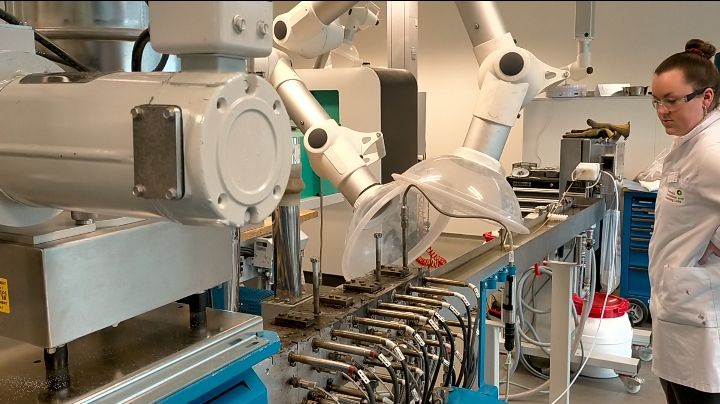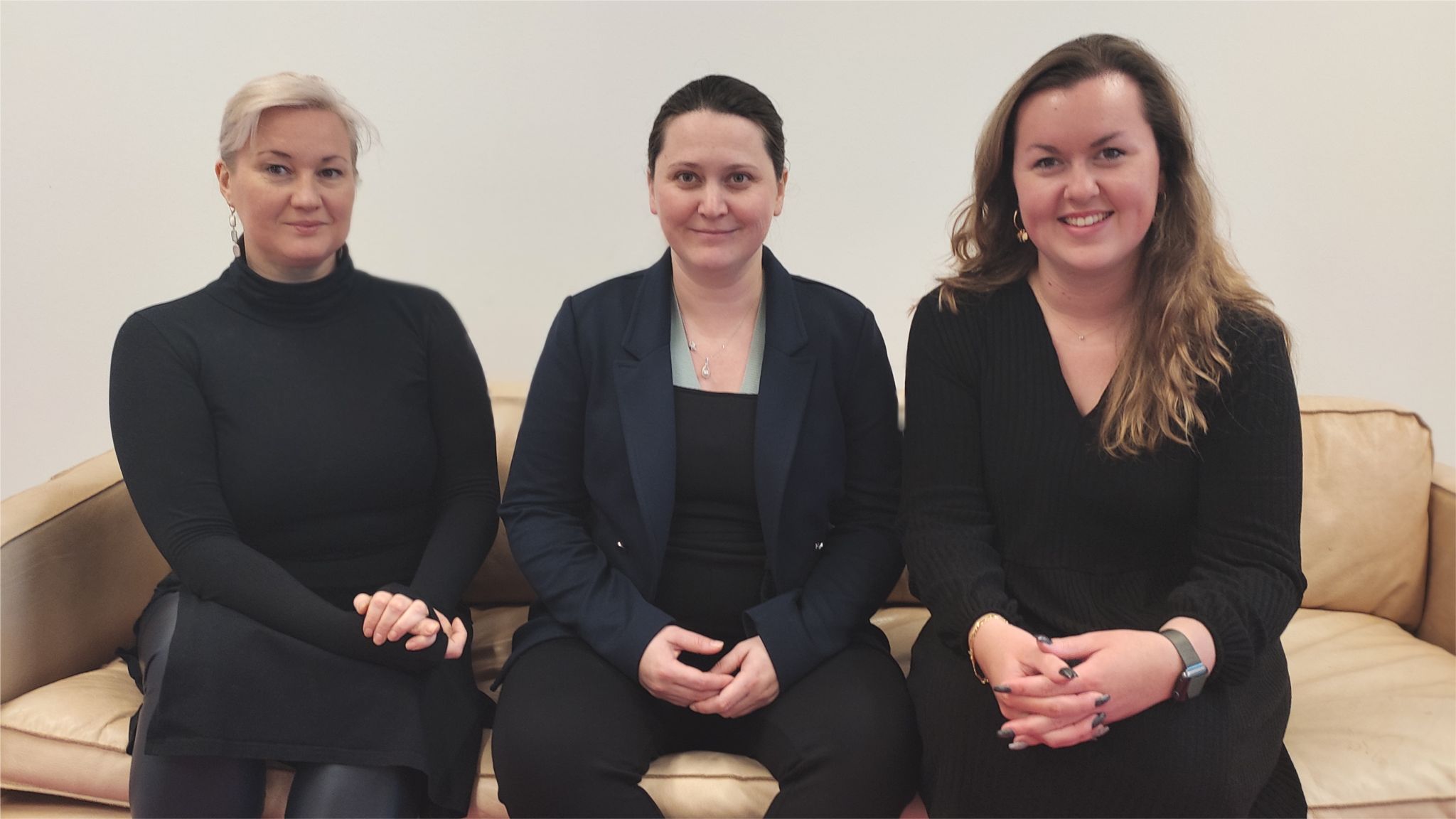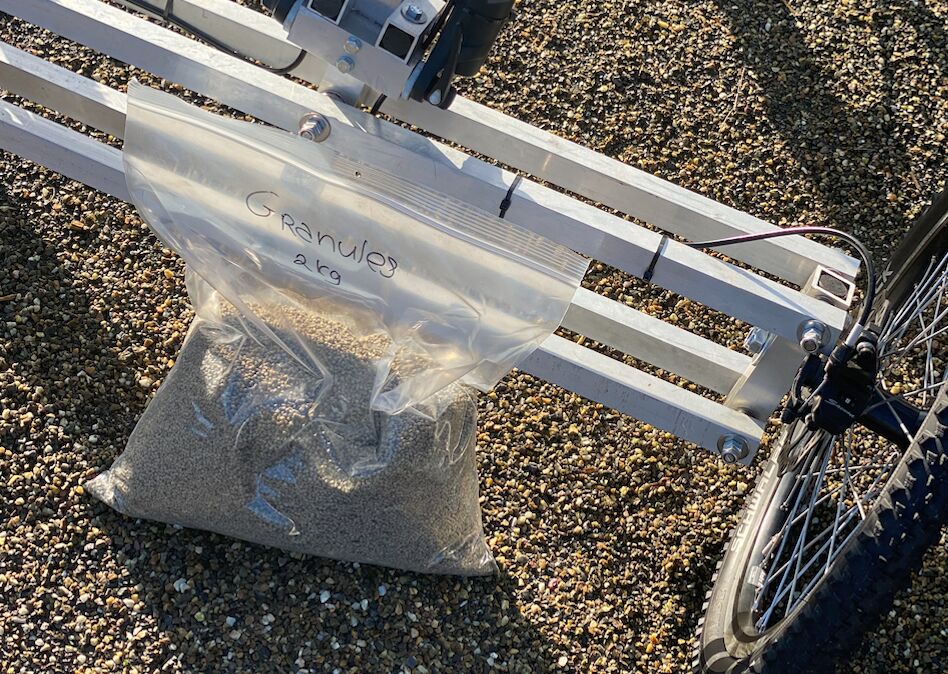My heroines create products familiar to people from innovative materials that help save the planet's resources and reduce emissions into the atmosphere. I have talked to Tatiana Dubovskaia, co-founder of Nettle TOC (p.1) and Kaisa Orgusaar, founder of ProProtein (p.2).

TATIANA DUBOVSKAIA
1. How was Nettle TOC established? Which of your steps was the hardest one?
Our project belongs to industrial chemical start-ups, it usually takes long cycles from an idea to a fully functioning plant for the production of a bioplastic composite. And we are still on the road.
The project started in Moscow in 2018 when the founder Natalya Kuznetsova was preparing her MSc degree at MISiS to better understand the field of new materials. Then project team participated in start-up pitches and accelerators. As the result, Natalya received an invitation from the Dutch innovative chemical cluster (Brightlands Chemelot Campus) to participate in the acceleration program.
After testing the business hypothesis we decided to establish and develop a startup in the Netherlands with a focus on the EU market. In 2021, Nettle TOC was shortlisted for the Sustainability Acceleration Program from StarupBootCamp. We are currently testing our material in end-user products and have started looking for investments to build a pilot factory. The relocation was perhaps the hardest part of our journey.
2. How can nettle plastic be used?
Our biocomposite has increased strength characteristics and can be used in technical products, especially electronics, in such areas as household and electronic appliances, automotive, agriculture.
3. How large is your potential market? Does your company have potential buyers?
Yes, this spring we are completing the stage of testing our material with small clients, such as engineering centres, industrial design studios, there is a pre-order from the manufacturer of electric transforming bicycles.
We will be able to approach testing large customers when we solve the issue of scaling production, this is the task of the next stage.
Currently, only 2% of conventional plastic can be replaced by bioplastic, according to our calculations, our material can replace up to 30%.
What we are seeing now in the packaging and plastic disposables market is very likely to be seen in the next decade for other types of plastics. Since plastic is difficult to recycle, plastic garbage from household appliances, gadgets and agriculture 10 times exceeds that packaging. This is a really big issue, which causes excess CO2 from recycling and large amounts of microplastics, and we are working on solving it.
The EU market is our priority since there is a combination of pressure on traditional manufacturers and support for innovation, which means that the market will inevitably change.
In addition, this is a fairly cheap plant, in Eastern Europe, the cost of 1kg of dry nettle is about 10 cents, we can bring its share in the composite up to 50%. We also try to use the waste from agriculture and the textile industry, so we reduce competition from arable land that could be used to grow food.

Tatiana (left), Natalia and Delphine (LinkedIn)
4. Who helped you to set up the company?
We are grateful to the FabLab MISiS team for technical support in the process of creating the technology, Huib Adriaans for helping us with the first steps of our startup in the Netherlands, Hugo Delissen and the Brightlands team for support during the validation stage of our technology, Henk-John Guicherit and the entire SBC team for accelerating the testing stage market.
To all our wonderful mentors who shared and continue to share their experiences with us during these two years in Europe.
And, of course, to our families and friends who supported our ambitious plans and relocation to Europe.
5. Do you have production? If yes, has your plastic been tested in any way?
Last year we did more than 200 tests of our material at CHILL - Chemelot Innovation and Learning Labs, including comparison tests with some other popular composite materials on the market, such as wood, bamboo, cannabis.
This year we are producing the first 50 kg of material in the form of pellets for moulding machines and filaments for 3D printers for testing with potential customers.
For production, we use rental laboratory equipment and there is an agreement on partial contract manufacturing with a Dutch engineering centre. But, of course, the next step is to create our own pilot production, which would unite the entire technological chain.

6. Your company is registered in the Netherlands. What conditions do you find most favourable for your business?
We liked the support system for innovative businesses and start-ups that exists in the Netherlands. We won two LIOF grants, which helped to cover part of the R&D costs of the project, we use the WBSO subsidy. Finally, there are important tax benefits.
Also here we see the high quality of networking, for example, we did a joint project with CompasAgro, who grow nettles for the manufacture of plant protection products, we used their nettle waste to produce a composite, such partnerships allow us to create truly sustainable projects.
We also met a surprisingly large number of mentors and supportive people who really understand what it takes to run a startup.
7. How large is your team now? How long did it take to find the right specialists?
Now we have three people in the team, and, which was not planned, all three are women. We joke that it turned out to be a rather trendy all-female sustainable company.
The team assembled slowly and carefully.
The founder and CEO of the company, Natalia Kuznetsova, was the main implementer of the idea for several years, at the stage of development and confirmation of the technology, she is also the author of the technological solution that we have filed for a patent in the EU.
I joined the project this year as a co-founder and BizDev with a mission to build a working business out of technology.
The third member, CTO Delphine Rompelberg, who joined the project a year ago as an intern and volunteer, has gradually become not only an important member of our team but also its public face. This year, Delphine will also become a co-founder through an option program.
8. What advice would you give to aspiring entrepreneurs in your niche?
Since I already had one startup related to city farming behind me, I can say that three things determine your outcome (which can be either success or failure).
First, your perseverance. There will be a huge number of obstacles on the way, every day a startup faces complex challenges and problems. Get ready methodically like a marathon, achieve intermediate goals, no matter what, rely only on your own strength.
The second is the team. One goes faster, and with the team further. Choose your team thoughtfully, because the impact of each individual on the first steps of a startup is very high. If it doesn’t work out, say goodbye quickly. Don't rush to distribute shares, the best way out is options based on the new colleague's performance.
Third, is the market. Look for the most favourable, be prepared for relocation, if in some region the project has more chances for growth. Be not only a parent but also a producer for your company.
Nettle TOC LinkedIn: linkedin.com/company/nettle-plastic
Your content has been voted as a part of Encouragement program. Keep up the good work!
Use Ecency daily to boost your growth on platform!
Support Ecency
Vote for new Proposal
Delegate HP and earn more